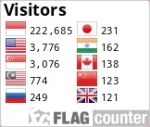Keadilan Restoratif dalam Melindungi Hak Korban Tindak Pidana Cyber: Manifestasi dan Implementasi
DOI:
https://doi.org/10.26623/jic.v8i2.6365Keywords:
Victims' Rights, Restorative Justice, Cyber Crime, Hak Korban, Keadilan Restoratif, Tindak Pidana CyberAbstract
The purpose of this study is to analyze the application of restorative justice in cyber crime, especially for victims of cyber crime. This research is a normative legal research with a concept and statutory approach. The results of the study confirm that the manifestation of protecting the rights of victims of restorative justice-based cyber crime can actually be carried out by providing assistance, facilitation, and compensation which are considered more relevant and essential to fulfilling victims' rights. This is considered more relevant when compared to the orientation to catch perpetrators of cyber crimes which tend to be more difficult and on the one hand are also not able to fulfill the rights of victims who are reduced as a result of a cyber crime. Therefore, restorative justice efforts that emphasize recovery and compensation for victims are relevant to efforts to ensure the protection of the rights of victims of cyber crime. The implementation of the protection of the rights of victims of restorative justice-based cyber crimes can be carried out by revising the ITE Law and its amendments by adding a restorative justice orientation as the first step to provide protection for the rights of victims of cyber crimes. Apart from that, revisions also need to be made to the PDP Law, especially in the absence of provisions for a time limit for the establishment of implementing regulations for compensation mechanisms. In addition to revising the PDP Law to provide a time limit for the formation of implementing regulations, the President can also immediately pass Government Regulations related to technical compensation for cyber crimes.
Tujuan penelitian ini yaitu menganalisis penerapan keadilan restoratif dalam tindak pidana cyber khususnya bagi korban tindak pidana cyber. Penelitian ini merupakan penelitian hukum normatif dengan pendekatan konsep dan perundang-undangan. Analisis dilakukan secara kualitatif-preskriptif yang hasil akhirnya berupa solusi hukum atas isu hukum yang dikemukakan dalam penelitian ini. Hasil penelitian menegaskan bahwa manifestasi perlindungan hak korban tindak pidana cyber berbasis keadilan restoratif sejatinya dapat dilakukan dengan memberikan pendampingan, fasilitasi, serta ganti rugi dianggap lebih relevan dan esensial untuk memenuhi hak-hak korban. Hal ini dianggap lebih relevan jika dibandingkan dengan orientasi untuk menangkap pelaku tindak pidana cyber yang cenderung lebih sulit serta di satu sisi juga tidak secara substantif dapat memenuhi hak-hak korban yang tereduksi akibat suatu tindak pidana cyber. Oleh karena itu, upaya keadilan restoratif yang menekankan pemulihan dang anti rugi bagi korban relevan dengan upaya untuk menjamin perlindungan hak korban tindak pidana cyber. Implementasi perlindungan hak korban tindak pidana cyber berbasis keadilan restoratif dapat dilakukan dengan melakukan revisi atas UU ITE beserta perubahannya dengan menambahkan orientasi keadilan restoratif sebagai langkah awal untuk memberikan perlindungan hak korban tindak pidana cyber. Selain itu, revisi juga perlu dilakukan pada UU PDP, khususnya dengan tidak terdapatnya ketentuan limitasi waktu dibentuknya peraturan pelaksana mekanisme ganti rugi. Selain merevisi UU PDP untuk memberikan limitasi waktu dibentuknya peraturan pelaksana, Presiden juga dapat secepatnya mengesahkan Peraturan Pemerintah yang berkaitan dengan teknis pemberian ganti rugi atas tindak pidana cyber.
References
Ab Aziz, Norjihan, Nurah Sabahiah Mohamed, Nasimah Hussin, and Najaa Syahirah Samsudin. “Restorative Justice in The Child Justice System: Implementation in Other Jurisdictions.” Malaysian Journal of Social Sciences and Humanities (MJSSH) 7, no. 6 (2022): e001561. https://doi.org/10.47405/mjssh.v7i6.1561.
Ade Borami Ju, Eko Nurisman. “Cyberbullying: Pertanggungjawaban Pidana Anak Atas Hilangnya Nyawa Seseorang Ditinjau Berdasarkan Keadilan Restoratif.” Sasana 8, no. 1 (2022): 177.
Ahmad, Sufmi Dasco. “Cybercrime In The Context Of Criminal Defamation In Indonesia.” Webology 19, no. 2 (2022): 803–13.
Angkasa, Angkasa, Rili Windiasih, and Ogiandhafiz Juanda. “Efektivitas Rancangan Undang-Undang Penghapusan Kekerasan Seksual Sebagai Hukum Positif Dalam Perspektif Viktimologi.” Jurnal Usm Law Review 4, no. 1 (June 2021): 117. https://doi.org/10.26623/julr.v4i1.2696.
Asep Saepudin Jahar, Raju Moh Hazmi, Nurul Adhha. “Construction of Legal Justice, Certainty, and Benefits in the Supreme Court Decision Number 46P/HUM/2018.” Cita Hukum 9, no. 1 (2021): 162.
Asri, Anak Agung Sagung Mas Anastassia Nawang. “Digital Marketing In The Era Of Society 5.0 By Applying Design Thinking.” In International Conference on Industrial Revulution 4.0, 291, 2022.
Benuf, Kornelius, Siti Mahmudah, and Ery Agus Priyono. “Perlindungan Hukum Terhadap Keamanan Data Konsumen Financial Technology Di Indonesia.” Refleksi Hukum: Jurnal Ilmu Hukum 3, no. 2 (2019): 145–60. https://doi.org/10.24246/jrh.2019.v3.i2.p145-160.
Defi Sri Sunardi Ramadhani, Setiawan Noerdajasakti, Faizin Sulistio. “Kedudukan Surat Keputusan Bersama Sebagai Pedoman Implementasi Pasal Penghinaan Dan Pencemaran Nama Baik Dalam UU ITE.” Ilmiah Pendidikan Pancasila Dan Kewarganegaraan 7, no. 2 (2022): 380.
Dewi, Priastami Anggun Puspita. “Proving The Insanity Defense in The Enforcement of Criminal Law in Indonesia.” Jurnal Dinamika Hukum 19, no. 3 (2020): 670. https://doi.org/10.20884/1.jdh.2019.19.3.2739.
Faith Gordon, Alyce McGovern, Chrissy Thompson Mark A. Wood. “Beyond Cybercrime: New Perspectives on Crime, Harm and Digital Technologies.” ICJD&SD 11, no. 1 (2022): 3. https://doi.org/10.1177/146808740500600401.
Fery, Muhammad Solikhin. “Pendekatan Keadilan Restoratif Dalam Penegakan Hukum Tindak Pidana Siber Di Polda Jatim.” Kawruh Abiyasa 2, no. 2 (2022): 169.
Firmansyah, M Julnis. “UU PDP Disahkan, Pemalsu Data Pribadi Diancam Denda Hingga Rp6 Miliar.” nasional.tempo.co, 2022. https://nasional.tempo.co/read/1646858/uu-pdp-disahkan-pemalsu-data-pribadi-diancam-denda-hingga-rp6-miliar (Diakses Pada Tanggal 30 Januari 2023).
Gul, Rehna, and Abdallah Mohamed Othman El Nofely. “The Future Of Law From The Jurisprudence Perspective For Example :The Influence Of Science & Technology To Law, Ai Law.” Equity of Law and Government 1, no. 1 (2021): 80.
Gunatilleke, Gehan. “Justifying Limitations on the Freedom of Expression.” Human Rights Review 22, no. 1 (March 2021): 91–108. https://doi.org/10.1007/s12142-020-00608-8.
Harding, Andrew. “Theories of Law and Development.” Asian Journal of Social Science 46, no. 4–5 (September 2018): 421–44. https://doi.org/10.1163/15685314-04604003.
Harnowo, Tri. “Law as Technological Control of the Infringement of Intellectual Property Rights in the Digital Era.” Corporate and Trade Law Review (CTLR) 2, no. 1 (2022): 65–79.
Irwansyah. Penelitian Hukum: Pilihan Metode Dan Praktik Penulisan Artikel. 3rd ed. Yogyakarta: Mira Buana Media, 2020.
Johnstone, Gerry. “Restorative Justice and the Culture of Control.” Special Issue: Rethinking the Restorative Dimension of Criminal Justice 61, no. 1 (2022): 25.
Kamran, Muhammad, and Maskun Maskun. “Penipuan Dalam Jual Beli Online: Perspektif Hukum Telematika.” Balobe Law Journal 1, no. 1 (2021): 41. https://doi.org/10.47268/balobe.v1i1.501.
Katagiri, Nori. “Why International Law and Norms Do Little in Preventing Non-State Cyber Attacks.” Journal of Cybersecurity 7, no. 1 (February 2021): 1–9. https://doi.org/10.1093/cybsec/tyab009.
Koto, Ismail. “Cyber Crime According to the ITE Law.” IJRS: International Journal Reglement & Society 2, no. 2 (2021): 104.
Kryshtanovych, Myroslav, Roman Storozhev, Kostiantyn Malyshev, and Anna Munko. “State Management of the Development of National Cybersecurity Systems.” International Journal of Computer Science and Network Security 22, no. 5 (2022): 11–16.
Lestari, Okta, Br Ginting, Abdul Razak Nasution, and Saiful Azmi Hasibuan. “Juridical Review of Social Media Defamation.” International Journal of Economic, Technology and Social Sciences 3, no. 1 (2022): 190–94.
Meliala, Nefa Claudia. “Rechterlijk Pardon (Pemaafan Hakim) : Suatu Upaya Menuju Sistem Peradilan Pidana Dengan Paradigma Keadilan Restoratif.” Jurnal IUS Kajian Hukum Dan Keadilan 8, no. 3 (2020): 551. https://doi.org/10.29303/ius.v8i3.820.
Muldani, Trisno. “Implikasi Awal Penerbitan SKB UU ITE Pasal 27 Ayat (3).” MUKASI: Jurnal Ilmu Komunikasi 1, no. 2 (2022): 150.
Mutanda, D., & Hendricks, C. “Restorative Justice in Zimbabwe’s Reconciliation Process: Some Considerations.” Peace and Conflict: Journal of Peace Psychology 28, no. 4 (2022): 493.
Rahmana, Radya Dzuhrizha, and Adhitya Widya Kartika. “Penegakan Hukum Bagi Pelaku Pembuatan Dan Penyebaran Scam Page ( Studi Di Kepolisian Daerah Jawa Timur ).” Risalah Hukum 18, no. 2 (2022): 83–98.
Roger Brownsword, Han Somsen. “Law, Innovation and Technology: Fast Forward to 2021.” Law, Innovation and Technology 13, no. 1 (2021): 8.
Siahaan, Albert Lodewyk Sentosa. “Urgensi Perlindungan Data Pribadi Di Platform Marketplace Terhadap Kemajuan Teknologi.” Majalah Hukum Nasional 52, no. 2 (2022): 211.
Sodik Muslih, Mutiara Ramadhani, Diyah Ayu Riyanti, Muhammad Mariza. “Implementasi Restorative Justice Pada Penyelesaian Kasus Pencemaran Nama Baik Dalam UU ITE.” Widya Pranata Hukum : Jurnal Kajian Dan Penelitian Hukum 3, no. 2 (2021): 100.
Sukardi, Sukardi, and Hadi Rahmat Purnama. “Restorative Justice Principles In Law Enforcement And Democracy.” Journal of Indonesian Legal Studies JILS 7, no. 1 (2022): 155–90.
Sukawati, Maheswara Perbawa. “European Union Policy on Artificial Intelligence Related to Cyber Crime.” Hang Tuah Law Journal 4, no. 1 (2020): 82–83.
Triantono, Triantono, and Muhammad Marizal. “Konsep Moderasi Pidana Mati RKUHP Dalam Perspektif HAM Dan Kepentingan Negara.” Volksgeist: Jurnal Ilmu Hukum Dan Konstitusi 5, no. 1 (2022): 111–27. https://doi.org/10.24090/volksgeist.v5i1.6399.
Widayanti, Putri Wahyu. “Tindak Pidana Pencurian Data Nasabah Dalam Bidang Perbankan Sebagai Cyber Crime.” Legacy : Jurnal Hukum Dan Perundang-Undangan 2, no. 2 (2022): 4.
Widiatno, Andi, and Ganiviantara Pratama. “Cyberporn Dalam Pasar Digital Non-Fungible Tokens: Prespektif Undang-Undang Informasi Transaksi Elektronik Dan Pornografi.” Journal Justiciabelen (Jj) 2, no. 2 (2022): 91. https://doi.org/10.35194/jj.v2i2.2110.
Downloads
Published
Issue
Section
License
The journal holds the copyright for each article published with work licensed simultaneously under a Creative Commons Attribution 4.0 International License, which allows others to share the work with an acknowledgment of the authorship and early publication of the work in this journal.










